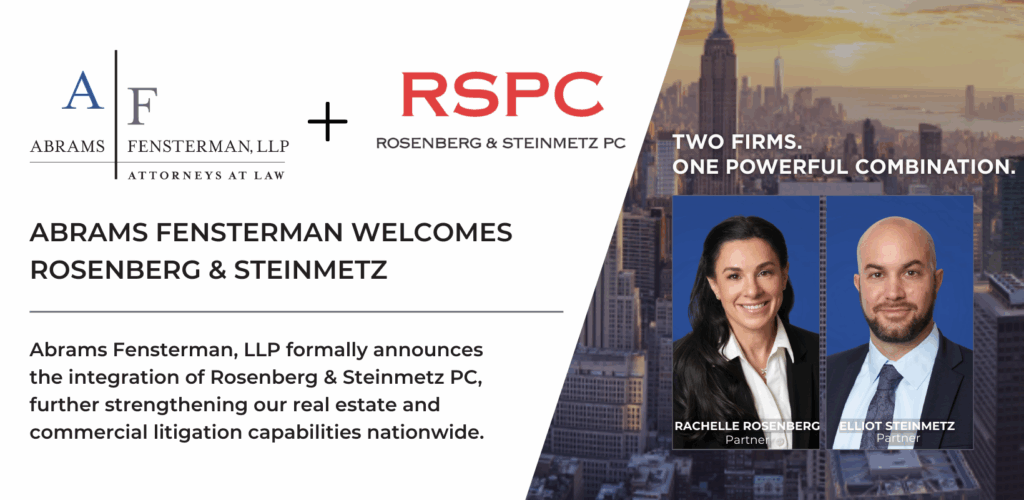Daniel Alter is a Partner at Abrams Fensterman LLP, working out of the firm’s White Plains office. In his capacity as the firm’s Cryptocurrency Practice Leader, he will present remarks before the New York State Assembly Committees on Banks and Consumer Affairs & Protection, in a public hearing that seeks to obtain input on the security and transparency of the cryptocurrency industry in New York.
Mr. Alter’s oral testimony will contribute to the Assembly’s work of examining the transparency and security of the cryptocurrency industry and potential improvements as they relate to investor and consumer protection.
The notice of public hearing can be found here.
PREPARED REMARKS OF DANIEL S. ALTER BEFORE THE COMMITTEES ON BANKS AND CONSUMER AFFAIRS & PROTECTION NEW YORK STATE ASSEMBLY, MAY 25, 2023
Good morning/afternoon, Chair Hunter and Chair Rozic. I would like to thank you and the members of the Committees on Banks and Consumer Affairs & Protection for allowing me to speak today about the evolving world of cryptocurrency regulation. Considering the enormous losses incurred by investors worldwide this past year due to fraudulent schemes and highly volatile digital assets, the subject is very much a matter of public concern. And as a center of global commerce and finance, New York State has a critical interest in maintaining the safety and security of its crypto marketplace. That said, precisely because New York is a center of global commerce and finance, the State also has a critical interest in keeping a crypto marketplace here. The great challenge for this body is in striking the right regulatory balance that can achieve both goals.
Admittedly, that observation is not unique. But I do have some historical and practical insights from my professional experience over the past 15 years to share that could be helpful in your efforts.
As background, I was a senior advisor and special counsel to the New York State Attorney General, and I helped enforce the Martin Act to address major securities fraud related to the mortgage crisis of 2007. Starting in 2012, I was the first General Counsel for the New York State Department of Financial Services, and I was among the several designers of the BitLicense regulations. Later, I was General Counsel for the first New York State chartered trust company to service the cryptocurrency industry – which was also the first state-chartered financial institution to do so anywhere in the country. And now, in private practice, I counsel clients on regulatory matters across the county concerning cryptocurrency and the financial services sector. In sum, I’ve been around the blockchain.
In that time, I’ve learned that it’s best to look at cryptocurrency regulation in context rather than in the abstract. We have not yet reached a level of sophistication – either in technological development or the understanding of the legal risks associated with digital assets – to legislate in the abstract.
The BitLicence provides a good example of what I’m talking about. Back in 2013, bitcoin’s popularity was on the rise and it was almost entirely unregulated. At least among federal and state supervisors, who were only generally aware of its popularity among criminal money launderers, bitcoin was viewed primarily as a means for transferring monetary value from person to person.
Most state regulators therefore tried to shoehorn developing cryptocurrency businesses and exchanges into existing licensing regimes for money transmitters. DFS realized, however, that the exchange of bitcoin involved more than money transmission – that the added functionality of the blockchain to secure data and automate transactions affected the value of cryptocurrency and therefore required closer supervision. Nevertheless, the BitLicense was initially designed to regulate the transfer of digital assets, not the assets themselves. That was the context back then.
To be sure, ten years ago, DFS had no clear idea as to the number and nature of financial products into which cryptocurrency would evolve. Yet, despite the severe criticism that DFS received from the crypto community that the BitLicense would stifle economic innovation, the rules were flexible enough to foster the growth of a responsible market in New York State for digital assets.
Ten years later, though, the context is very different. Digital assets now include a host of new products, including a variety of so-called stablecoins and a menu of more exotic loan and interest-bearing investments. In addition, inadequately regulated crypto investment funds have collapsed, wiping out billions of dollars in global investment capital. In the wake of that turmoil, there’s a solid argument that more regulatory supervision is required. But by whom and to what extent?
This hearing is not the right setting in which to critique the New York State Attorney General’s all-inclusive proposal to regulate cryptocurrency in New York – or even the wisdom of specific provisions – except to say that the bill tries to bite off far too much and its timing is miscalculated. Context tells us why.
By example, New York State has been tremendously important as a national securities regulator for two reasons. First, location, location, location. The nation’s stock market is on Wall Street, so everyone buying and selling U.S. securities must come to New York. That’s a beneficial accident of history.
Second, New York State’s most effective securities enforcement efforts are interstitial. That’s to say, they occur within the framework of a comprehensive federal regulatory scheme. When that regulatory program fails in a particular circumstance, New York can respond with a targeted enforcement action that has an enormous impact well outside its borders.
But New York State has no such leverage with respect to cryptocurrency regulation. When it comes to the online marketplace, New York has no geographic advantage over any other jurisdiction in the country. Instead of Wall Street, Crypto Alley could just as easily be in Wyoming.
Moreover, absent a nationwide baseline of federal regulation, cryptomarkets will move out of New York to set up shop in less rigorous jurisdictions. As an economic matter, the cost of presumptuous supervision could make New York unfertile ground, resulting in a great financial loss to the state with potentially irreparable ramifications for its future role as a financial hub.
All this is not to say that New York should abandon effective regulation until the federal government finally steps up to do its job. Our regulatory philosophy, however, should be incremental. We should bolster market protections where we detect actual abuse, careful not to drive away legitimate enterprises with burdensome requirements that are unique to the Empire State. And we should create opportunities for crypto businesses to grow within more closely state-supervised institutions, so as to incentivize their safe and sound expansion within New York and not somewhere else.
Thank you. I welcome any questions from committee members.





